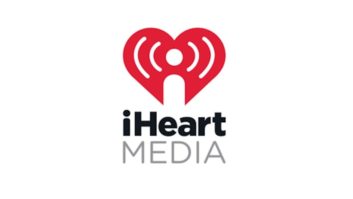
The Chapter 11 reorganization of iHeartMedia is just getting underway, but already there has been speculation that the radio giant will shed radio stations during the process, even though company leaders say there will be no wholesale liquidation of properties.
At the time of its filing in March, the broadcaster said it had reached an agreement in principle with a majority of its creditors and financial sponsors to trim its oversized debt by at least $10 billion via the reorganization; but court documents reveal lots more wiggle room with its stakeholders to drive down debt even further, analysts say. The San Antonio-based company listed $12.3 billion in total assets and $20.3 billion in debt in paperwork filed with the U.S. Securities and Exchange Committee.
The Chapter 11 process gives iHeartMedia some “breathing space,” as one legal observer put it, since it effectively is an automatic stay against collection or other legal actions by creditors. “That respite is significant,” the expert said.

The voluntary bankruptcy filing — the largest ever by a radio broadcaster — comes on the heels of Cumulus Media’s Chapter 11 pre-packaged reorganization in November. iHeartMedia has about 850 radio stations plus digital, mobile, social and data platforms and products like the iHeartRadio app.
Most analysts don’t expect iHeartMedia employees to see major changes during the early phases of bankruptcy. The company has said it does not plan to lay off employees or do a salary dump. While changes of some kind at the company are likely, bankruptcy experts note that cost-trimming usually comes before a Chapter 11 filing at the behest of major stakeholders.
A story in Forbes after the filing predicted a major station selloff with a much leaner iHeartMedia emerging on the other side of the reorganization; that could still happen, bankruptcy experts said. Townsquare Media for one has suggested it is positioned with cash in hand to be a player for selloff properties if iHeartMedia goes that route. We already know that Liberty Media Corp., owner of SiriusXM, made a play for iHeartMedia before the reorganization plan was submitted. And Bloomberg reported that iHeartMedia creditors were still exploring alternative proposals.
TECH PROJECTS CONTINUE
Meanwhile, day-to-day operations at iHeartMedia are unlikely to change drastically. The broadcaster is expected to keep buying broadcast equipment as necessary, experts said. An observer familiar with United States bankruptcy law said iHeartMedia likely has identified suppliers and vendors that provide it key goods and services and filed motions for them to receive preferred treatment when it comes to paying off unsecured debt and paying bills during the Chapter 11 process.
Extra scrutiny is likely being paid to the broadcaster’s capital expenditure budget, experts said. But major tech projects are not being sidetracked, according to Steve Davis, senior VP, real estate, facilities and corporate development for iHeartMedia.
“We are proceeding with projects we have committed to. I have 25 projects I’m involved with, and there are no planned delays,” Davis told Radio World. “It’s business as usual on the technical side.”
Davis said major remodeling projects involving stations in Boston and Seattle, acquired in a station swap with Entercom, are moving forward along with other capital projects. iHeartMedia swapped some of its own stations in Richmond, Va., and Chattanooga, Tenn., for four stations in Boston and three in Seattle.
Leon Barson, a partner in the finance, restructuring and bankruptcy group of Blank Rome LLP, said the balance sheet reboot is the crucial first step of many the radio broadcaster will need to take.

“The key for them is to maintain a focus on business operations and not be distracted and that is why you are hearing company leaders saying it will be business as usual,” Barson said. “They have to focus on keeping customers happy and keeping staff on board.”
Barson, who represented Nassau Broadcasting during its Chapter 11 filing and eventual liquidation in 2012, said iHeartMedia’s case is purely a “balance sheet makeover to move heavy senior secured debt” off the books in order to survive.
“The lenders were probably happy to just grab some of the equity. They’re banks and probably didn’t want to be left with 850 radio stations to operate or ultimately sell off at a discount,” Barson said.
Analysts have long said iHeartMedia has a solid business model but could not survive its overwhelming debt. In fact, the broadcaster has posted 18 consecutive quarters of year-over-year growth, according to its financials. The company’s financial unbalance began back in 2008 when private equity groups Bain Capital and Thomas H. Lee Partners purchased Clear Channel Communications in a highly leveraged deal valued at about $24 billion.
“It’s clear why iHeartMedia had to do this in order to emerge a stronger and healthier company. It appears that company executives believe the amount of time it needs in bankruptcy protection is relatively short, but sometimes these cases can take years,” said Vickie Driver, a Texas-based partner in the insolvency department with Husch Blackwell.

iHeartMedia leadership has not indicated a timetable for emerging from its reorganization.
Driver said iHeartMedia is doing everything it can to show it will emerge intact without a major selloff of properties.
“It is paying employees, paying taxes, keeping its insurance programs intact. They already have court approval to keep operating so as not to impact operations and customers,” Driver said. “Any severe company-wide cost trimming was likely carried out before the filing to bring the stakeholders on board with the reorganization plans.”
The broadcaster’s proceeding will play out in United States Bankruptcy Court for the Southern District of Texas in Houston before Judge Marvin Isgur, whom Driver described as a “very experienced Chapter 11 practitioner.”
“He’s a great draw in this situation and someone that can understand some of the complexities that will arise in the case. He will be very mindful of the 12,000 plus employees. That’s a very important constituency to keep in mind in Chapter 11 cases,” she said.
FAMILIAR NAMES
The list of iHeartMedia’s unsecured creditors is populated with familiar broadcast industry names like Nielsen, ASCAP, BMI and SoundExchange, all owed millions of dollars. One expert emphasized that financial amounts in such cases are a snapshot in time and that final amounts could be more or less based upon the timing of invoices being mailed and payments being received at the time of its mid-March filing.
Driver said iHeartMedia hasn’t indicated if it is going to “impair those with unsecured debt or whether they will be paid 100 cents on the dollar but their recovery is yet to be seen.”
Benjamin J. Lambiotte, principal in the Washington office of Garvey Schubert Barer, whose practice includes bankruptcy, said emerging from Chapter 11 occurs after confirmation of the reorganization plan and when the approved restructuring plans is implemented.

“For the court to approve the plan, generally the plan must be approved by each class of creditors whose claims have been impaired,” Lambiotte said.
The company said at the time of its filing it had approximately 83 percent of legacy debt holders on board with its Restructuring Support Agreement, representing about $11.9 billion worth of iHeartMedia total indebtedness. That was good enough for the company to move ahead with the balance sheet restructuring plan.
Despite the twin iHeartMedia and Cumulus reorganizations, these developments left some in the broadcast industry optimistic that better times are ahead for radio. Entercom Chief David Field said he thinks the industry will be healthier because of it.
“With iHeart and Cumulus eventually emerging from bankruptcy, the industry will be even healthier going forward, and that’s good news for all of us,” Field wrote in a memo to Entercom employees.
Other analysts say the positive cash flow generated by iHeartMedia and Cumulus show the radio industry is sound enough, it’s just the companies couldn’t wiggle out from under their massive debt loads without the protections afforded by Chapter 11.
Cumulus, which was mired in about $2.4 billion of debt when it filed its prepackaged reorganization plan, has a goal of a late summer rebirth. The Atlanta-based broadcaster said it hopes to trim its debt by just over $1 billion by completing the Chapter 11 process.
HOW IT’LL WORK

iHeartMedia’s filing of voluntary Chapter 11 bankruptcy raises questions about what a successful planned reorganization — pending stakeholder approval — could look like for the country’s largest radio broadcast group. Radio World asked Jeffrey Tarkenton, an attorney in the bankruptcy and restructuring group at Womble Bond Dickinson (US) LLP, about what iHeartMedia is going through and the possible outcomes to its reorganization.
Read the online story “How the Chapter 11 Will Work.” Visit radioworld.com, keyword Tarkenton.
Comment on this or any story. Email [email protected].










